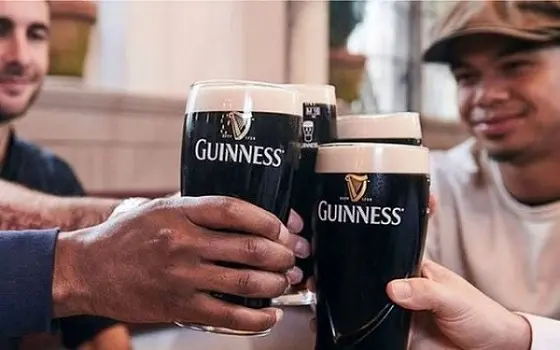The popularity of non-alcoholic beverages is rising, and Guinness is riding this wave with its alcohol-free variant, Guinness . According to Anna MacDonald, Diageo’s marketing director, there’s a real possibility that non-alcoholic Guinness could eventually outsell the traditional version. This prediction reflects a broader trend towards health-conscious choices, particularly among younger consumers.
Guinness’s Rapid Growth
Launched in Britain in 2021, Guinness has quickly gained traction. Recent reports show that sales of Guinness have doubled in Europe over the past year, making it the UK’s top-selling non-alcoholic beer. It now accounts for around 3% of Guinness’s total sales globally. This success indicates a strong and growing demand for alcohol-free options.
Shifting Social Trends
Ms. MacDonald highlights the shift in consumer behavior, noting that non-alcoholic options are particularly popular among younger generations focused on health and wellness. While the percentage of people who abstain from alcohol entirely remains relatively small, many are choosing to moderate their intake by consuming both alcoholic and non-alcoholic beverages. This trend is driving increased interest in products like Guinness.
Expansion Plans and Challenges
Diageo is responding to the growing demand by planning to introduce Guinness on draught in UK pubs. Currently, the beer is available in cans across most UK establishments, while it is already served on draught in Ireland. Ensuring the quality of draught Guinness poses challenges, as MacDonald explains, emphasizing the need for a certain volume of sales to maintain the product’s quality.
Addressing Supply Chain Issues
The surge in demand has led to supply chain constraints for Diageo. However, the company is investing in solutions to overcome these issues and meet the growing consumer interest. This investment is crucial as the non-alcoholic segment continues to expand rapidly.
Guinness’s Evolving Image
The success of Guinness comes at a time when traditional Guinness is also experiencing a revival. Once perceived as a beer primarily enjoyed by an older, predominantly male audience, Guinness is now attracting a more diverse demographic. Debra Crew, Diageo’s CEO, notes a noticeable increase in female drinkers and attributes part of the brand’s resurgence to cultural influences, including social media.
Cultural Influences and Market Adaptation
Social media and celebrity endorsements have played a significant role in shaping the modern image of Guinness. Figures like popstar Olivia Rodrigo and political leader Sir Keir Starmer have been seen enjoying Guinness, contributing to its appeal across various demographics. Additionally, Sir Tim Martin, founder of JD Wetherspoon, credits the brand’s recent popularity surge to changing fashion trends and wider acceptance among younger consumers.
Guinness’s New Sponsorships
In line with its evolving image, Guinness has recently signed a significant sponsorship deal with the Premier League, replacing Budweiser as the official beer. This move reflects the brand’s efforts to align itself with contemporary cultural and sporting events, further broadening its appeal.
Conclusion
The potential for non-alcoholic Guinness to surpass the original version in popularity highlights a significant shift in consumer preferences. With continued expansion and adaptation to modern trends, Guinness is well-positioned to capitalize on the growing demand for alcohol-free options, potentially reshaping the beer market in the process.


